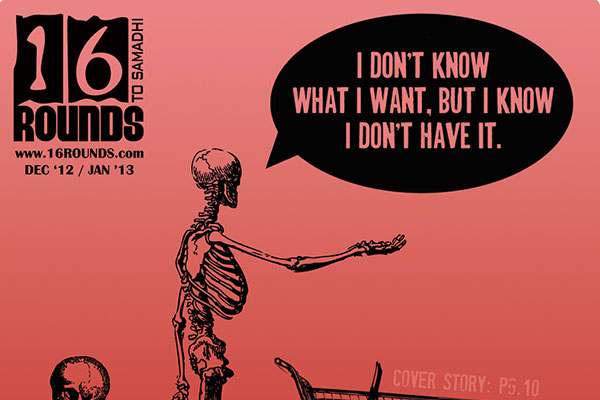THE SYSTEM: What is the need of an artificial luxurious life of cinema, cars, radio, flesh and hotels? Has this civilization produced anything but quarreling individually and nationally? Has this civilization enhanced the cause of equality and fraternity by sending thousands of people into hellish factories and the warfields at the whims of a particular person?
Manufacture of the “necessities of life” in factories and workshops, excessively prominent in the Age of Kali, or in the age of the machine, is the summit stage of the quality of darkness. Such manufacturing enterprises by human society are in the mode of darkness because factually there is no necessity for the commodities manufactured. Human society primarily requires food for subsistence, shelter for sleeping, defense for protection, and commodities for satisfaction of the senses. The senses are the practical signs of life. Human civilization is meant for purifying the senses, and objects of sense satisfaction should be supplied as much as absolutely required, but not for aggravating artificial sensory needs. Food, shelter, defense and sense gratification are all needs in ma-terial existence. Otherwise, in the pure, uncontaminated state of original life, the living entity has no such needs. They are therefore artificial. As such, increasing these artificial needs, as is the standard of material civilization, or advancing the economic development of human society, is a sort of engagement in darkness, without knowledge. By such engagement, human energy is spoiled, because human energy is primarily meant for purifying the senses in order to engage them in satisfying the senses of the Supreme. The Supreme, being the supreme possessor of spiritual senses, is the master of the senses, Hrsikesa. Hrsika means the senses, and isa means the master. The Supreme is not the servant of the senses, or, in other words, He is not directed by the dictation of the senses, but the conditioned souls, or the individual living entities in this material realm, are servants of their senses. They are conducted by the dictation of their senses, and therefore material civilization is a kind of engagement in sense gratification only. The standard of human civilization should be to cure the disease of sense gratification, and one can do this simply by becoming an agent for satisfying the spiritual senses of the Supreme. The senses are never to be stopped in their engagements, but one should purify them by engaging them in the pure service of sense gratification of the master of the senses.
FINDING SATISFACTION
Economic production in America has no comparison in the world, yet still people are dissatisfied. The youth is confused. It is nonsensical to think that simply by increasing production every-one will become satisfied. No one will be satisfied. Humans are not meant simply for eating. We have mental necessities, intellectual necessities, spiritual necessities. In India many people sit alone silently in the jungle and practice yoga. They do not require anything. How will increased production satisfy them? If someone were to say to them, “If you give up this yoga practice, I will give you two hundred bags of rice,” they would laugh at the proposal.
It is animalistic to think that simply by increasing production everyone will become satisfied. Real happiness does not depend on either production or starvation, but upon peace of mind. For example, if a child is crying but the mother does not know why, the child will not stop simply by giving it some milk. Sometimes this actually happens: the mother cannot understand why her child is crying, and though she is giving it her breast, it continues to cry. Similarly, dissatisfaction in human society is not caused solely by low economic production. That is nonsense. There are many causes of dissatisfaction. The practical example is America, where there is sufficient production of everything yet the youth are dissatisfied, confused. No, simply by increasing economic production people will not become satisfied. Marx’s knowledge is insufficient. Perhaps because he came from a country where people were in scarcity, he had that idea.
The gigantic industrial enterprises are products of a godless civilization, and they cause the destruction of the noble aims of human life. The more we go on increasing such troublesome industries to squeeze out the vital energy of the human being, the more there will be unrest and dissatisfaction of the people in general, although a few can live lavishly by exploitation.
People do not know that real happiness comes from spiritual understanding. That understanding is given in the Bhagavad-gita: Krishna is Supreme, the ultimate proprietor. We are not actually independent enjoyers because we are part of the Supreme. For example, in our body the stomach is the enjoyer and all other parts of the body are assistants. So this system is natural: there must always be someone who is the enjoyer and someone who is the worker. This principle is present in the capitalist system also. In Russia there is always conflict between the managers and the workers. The workers say, “If this is a classless society, why is that man sitting comfortably and ordering us to work?” The Russians have not been able to avoid this dilemma, and it cannot be avoided. There must be one class of people who are the directors and another class of people who are the workers. Therefore the only way to have a truly classless society is to find that method by which both(!) the managers and the workers will feel equal happiness. For example, if the stomach is hungry and the eyes see some food, immediately the brain will say, “O legs, please go there!” and “Hand, pick it up,” and “Now please put it into the mouth.” Immediately the food goes into the stomach, and as soon as the stomach is satisfied, the eyes are satisfied, the legs are satisfied, and the hand is satisfied.
While the communist says, “Nothing is mine,” he thinks everything belongs to the state. The state, however, is simply an extended “mine.” For example, if I am the head of a family, I might say, “I do not want anything for myself, but I want many things for my children.” Mahatma Gandhi, who sacrificed so much to drive the English out of India, was at the same time thinking, “I am a very good man; I am doing national work.” Therefore, this so-called nationalism or so-called communism is simply extended selfishness. The quality remains the same. The real change occurs when we say, “Nothing ultimately belongs to me; everything belongs to the Supreme, and therefore I should use everything in His service.” That is factual abolition of private property. Unless one understands these bare facts, it is not possible to achieve peace in the world, either individually or collectively. One can attain perfect peace only in complete spiritual consciousness.








cynthia
People are dillusional and believe they and their egotism are the center of the world. This idea is a disease in the collective consciousness of the planet and it needs to change for the sake of our environment and survival of our human species.
Mahat
Well said, Cynthia. We also need to change for the sake of the survival of decency.
Krishna
Very nice article. This reminds me of a saying “Live simple, live sample”. I think this exemplifies the simple living strategy and also to make sure that your life is a sample to another.
Also simple living makes the act of prioritizing items/actions/objects/events/people in your life that much more important.
I am going through the motions of all this and I am chronicling it for people to read and comment at pathtokrishna.wordpress.com !
Hare Krishna! and thanks for this nice magazine !